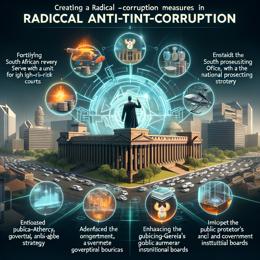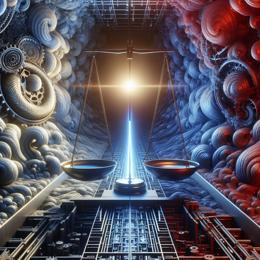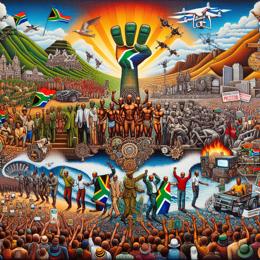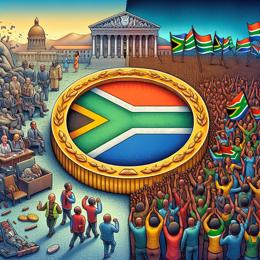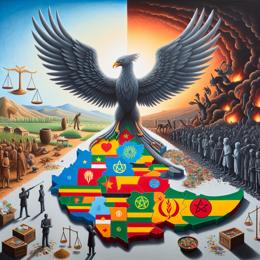Image created by AI
Prince Mashele: The Intellectual Beacon Guiding South Africa Through Turbulent Times
The voice of Prince Mashele, a respected South African intellectual and former speechwriter for President Thabo Mbeki, is becoming increasingly significant as the country navigates through its complex political landscape. Known for his profound insights and critical analysis, Mashele brings a unique perspective to the national discourse, emphasizing the urgent need for intellectual rigor and effective leadership within South Africa's political sphere.
Mashele’s intellectual journey is fueled by an insatiable passion for reading, citing influences from Bertrand Russell to Karl Marx, which he believes sharpens his analytical prowess necessary for evaluating the country's governance. This extensive reading habit, according to him, is essential for cultivating the analytical skills required to lead effectively, a quality he finds lacking in current political figures, including President Cyril Ramaphosa.
Drawing from his experiences with Mbeki, Mashele contrasts the intellectual depth of past leadership with the present, expressing disappointment in Ramaphosa's speeches which he feels fail to resonate with or inspire the populace. This, he suggests, is indicative of deeper issues within the leadership's vision and communication strategies.
Mashele does not shy away from controversial topics, including his unauthorized biography of ActionSA leader Herman Mashaba. Despite facing criticism, he defends the integrity of the project, highlighting it as a proud intellectual achievement born from observing global political trends of outsiders challenging established systems.
Analyzing the trajectory of South Africa’s political parties, Mashele provides a grim view on ActionSA’s potential longevity, pinpointing strategic errors, such as Mashaba's coalition with the ANC, which contradicts the foundational principles of his party. He extends his critique to the ANC, predicting the premature end to Ramaphosa's tenure due to internal party conflicts and envisioning a potential faction that could alter the party's future dynamics.
The commentary on former president Jacob Zuma’s MK Party further illustrates Mashele's point about the transient nature of certain political movements within South Africa, emphasizing structural vulnerabilities that become apparent in local-level elections.
However, Mashele offers a glimmer of hope amidst the seeming chaos. Comparing South Africa's state to that of Nigeria—chaotic yet functional—he points out the existence of a 'private state' indicated by successful private institutions and services which could form the backbone for national recovery. This dual-state perspective suggests that while public governance flounders, there are still viable sectors within the country that uphold its operational integrity.
Addressing his personal future in politics, Mashele remains open to the possibility of engaging directly in efforts to rescue the country, conditioned on the emergence of a credible, visionary collective.
As the nation nears another critical election cycle, his analysis underscores the potential for revitalization through committed and informed leadership. Mashele sees South Africa’s challenges as formidable yet surmountable, drawing parallels with global examples like Singapore and South Korea, which transformed through focused governance.
Prince Mashele’s voice remains a crucial one in the ongoing narrative of South Africa’s development, offering both critique and counsel at a time when the nation most needs clarity and direction.


